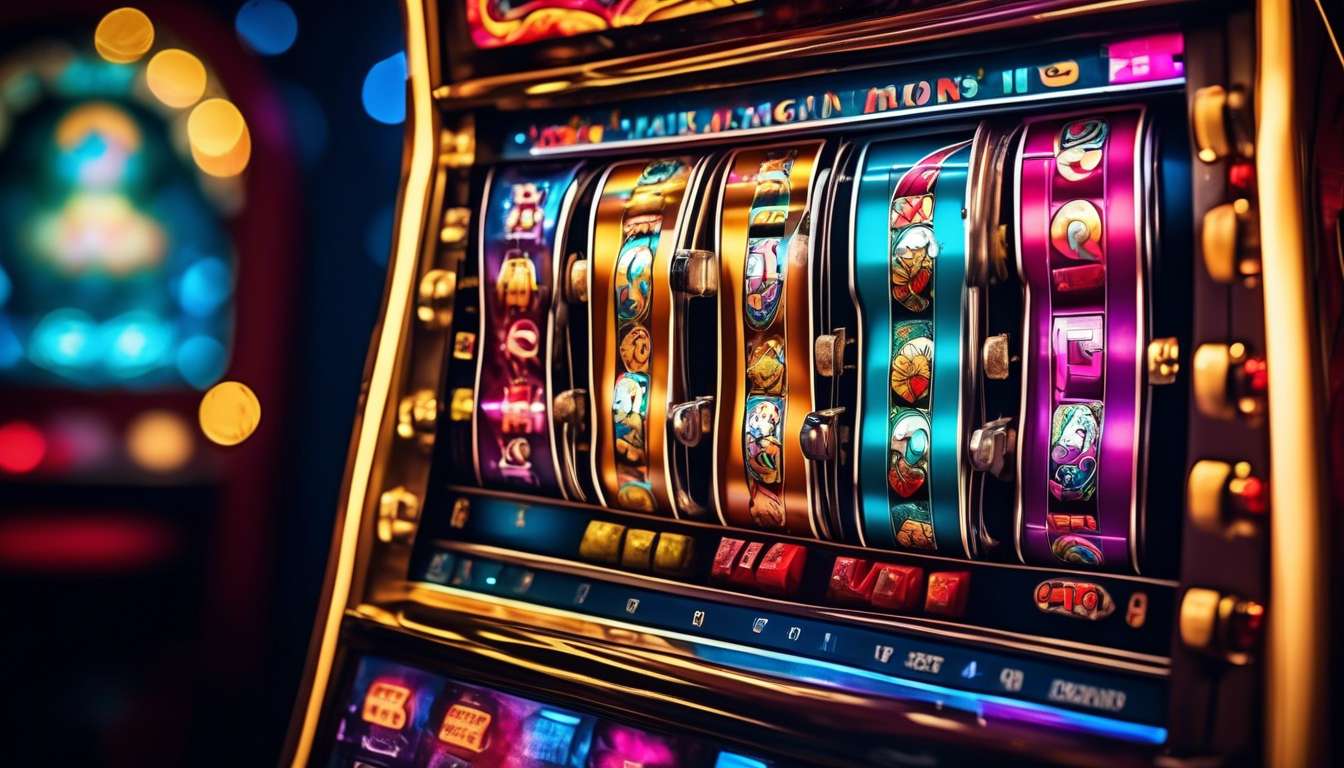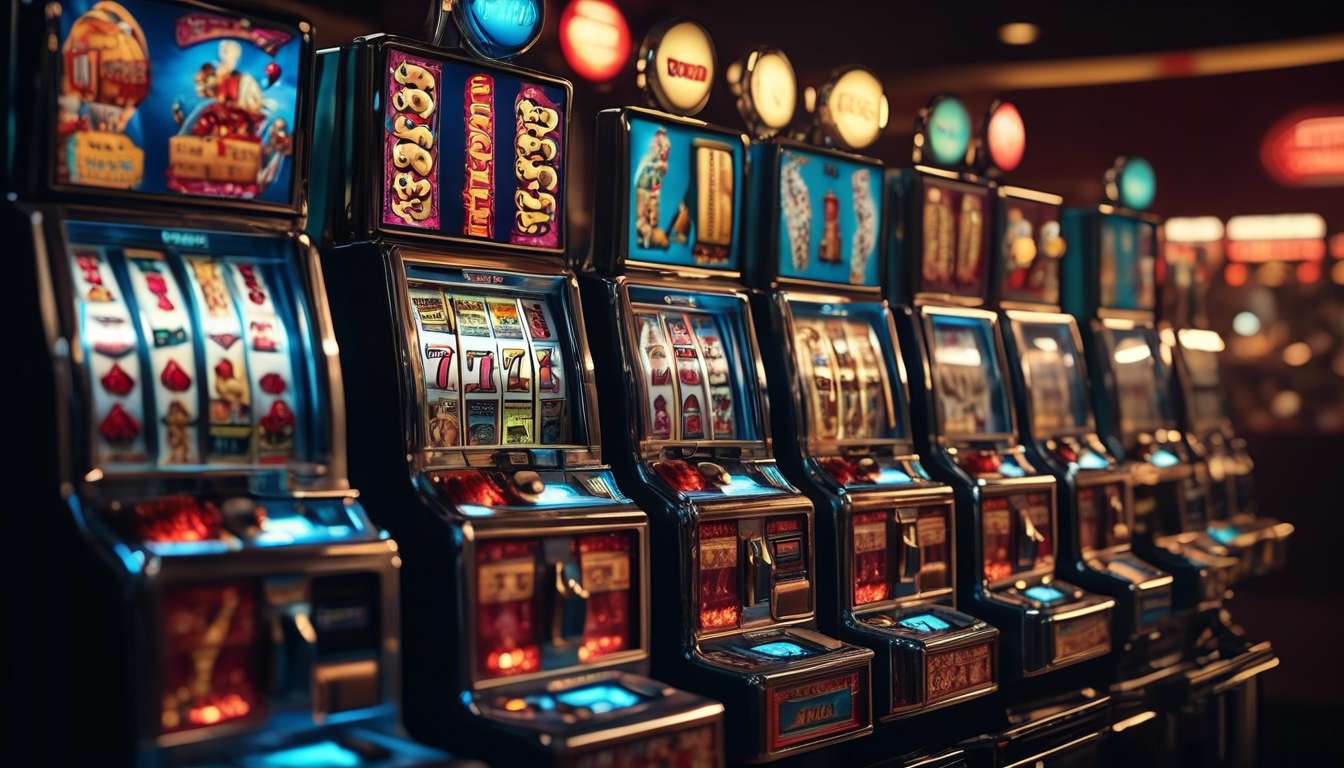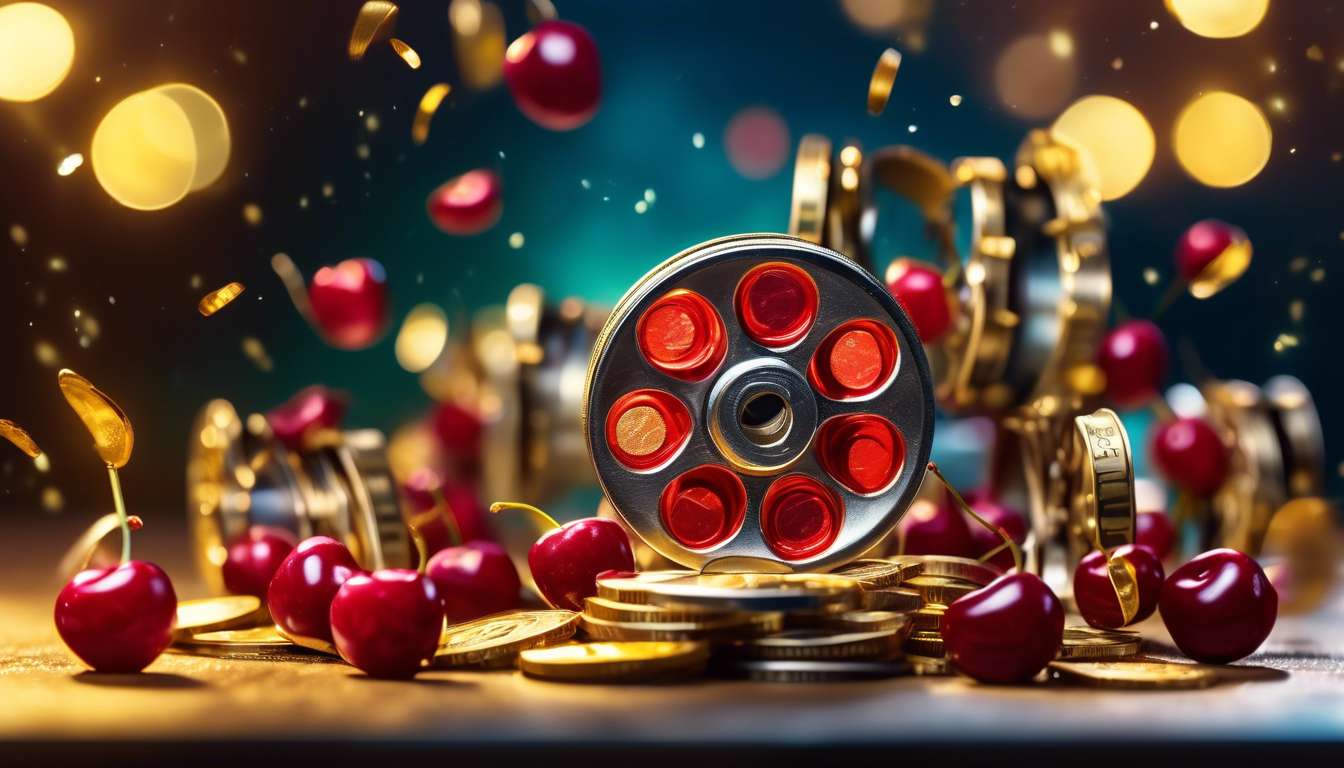As we delve into the fascinating world of slot gaming, we embark on a journey to uncover the intricate psychological patterns that influence our behavior. In this exploration, we will examine seven distinct behavior patterns that often emerge as we engage with these captivating machines.
Together, we will uncover the underlying motivations and triggers that drive us to pull the lever—or, more commonly now, press the button—again and again. By understanding these patterns, we can gain insight into the allure and addictive nature of slot gaming, allowing us to approach it with a more informed perspective.
Our shared goal is not only to reveal the psychological mechanisms at play but also to foster a deeper awareness of how they impact our decisions and experiences in the gaming environment.
Join us as we unravel the psychology of slot gaming and learn how to navigate this thrilling, yet complex, landscape.
The Element of Risk
Many of us are drawn to slot gaming because the element of risk triggers a thrilling mix of anticipation and uncertainty. This shared excitement connects us, creating a sense of belonging as we navigate the unpredictable spins. We embrace risk-taking because it fuels our innate desire for adventure and the possibility of reward. Each pull of the lever or push of the button sends a rush of dopamine through our systems, heightening our senses and making us feel alive.
We often find ourselves under the influence of cognitive biases, which can amplify our love for the game. These biases lead us to:
- Overestimate our chances of winning
- Believe that we’re "due" for a win after a losing streak
This shared belief, even if misguided, bonds us further as we collectively chase that elusive jackpot.
Together, we indulge in the thrilling dance of risk and reward, seeking not just the win, but the shared experience and connection it brings.
Dopamine Release
Our brains light up with pleasure when we engage in slot gaming due to the surge of dopamine that accompanies each spin. This release of dopamine creates a sense of euphoria and excitement.
The social aspect of gaming enhances the experience:
- Sharing the thrill of risk-taking with friends or like-minded enthusiasts
- Cultivating a sense of belonging
- Heightening collective enjoyment through anticipation of winning
Cognitive biases play a significant role in our gaming behavior:
- They trick us into believing we’re closer to a win than we actually are.
- This skewed perception keeps us engaged and fuels the dopamine cycle.
- Encourages us to take more risks and continue playing.
- Reinforces our desire to keep going, hoping for a rewarding jackpot.
In this communal atmosphere, we share both the highs and lows, bonded by the same rush of dopamine, making each spin an enticing shared adventure.
Near Miss Phenomenon
Many of us have experienced the near miss phenomenon in slot gaming, where coming close to winning entices us to keep playing. It’s a shared feeling, like we’re almost part of an exclusive club that’s just one spin away from hitting the jackpot. This sensation taps into our risk-taking nature, driving us to chase that victory despite the odds.
When we experience a near miss, our brains release dopamine, the same neurotransmitter responsible for feelings of pleasure and reward. We’re wired to seek out these good feelings, which makes it hard to walk away when we’re so close. This powerful response can cloud our judgment, causing us to fall prey to cognitive biases. We irrationally believe that a win is just around the corner, even when logic tells us otherwise.
By understanding the near miss phenomenon, we can better recognize these patterns in ourselves. Together, we can navigate the world of slot gaming with greater awareness, ensuring our experiences remain enjoyable and within our control.
Illusion of Control
The Illusion of Control in Slot Games
Many of us fall into the illusion of control, believing we can influence the outcome of slot games through our actions or choices. We might:
- Press buttons with a certain rhythm
- Pull the lever with just the right amount of force
These rituals make us feel like we can sway the odds in our favor. This behavior stems from our innate desire for control and predictability, even in situations governed by chance.
The Role of Dopamine
When we engage in risk-taking activities like slot gaming, our brains release dopamine, rewarding us with a sense of pleasure and excitement. This chemical high reinforces the belief that our actions matter, despite the randomness of each spin.
Cognitive Biases
Cognitive biases often cloud our judgment, making us overestimate our ability to control the game.
Shared Experiences and Camaraderie
In our shared experiences, we find camaraderie, bonding over stories of:
- Near wins
- Lucky streaks
Together, we can recognize these illusions, understanding that while we can’t control the outcome, we’re all connected by the thrill of the game.
Loss-Chasing Behavior
Many of us fall into the trap of loss-chasing behavior, desperately trying to win back what we’ve lost in the hopes that the next spin will be the lucky one. It’s a common thread in our shared journey through the world of slot gaming. We’re driven by a potent mix of risk-taking and the rush of dopamine that surges through our brains when we’re on the brink of a win. This emotional high can cloud our judgment, leading us to ignore the odds stacked against us.
We often fall prey to cognitive biases, believing that our luck will turn if we just keep playing. This belief can tighten its grip, making it difficult for us to walk away. We tell ourselves that persistence pays off, despite the reality that each spin is independent of the last.
As we gamble alongside one another, understanding these patterns can help us find balance and create a healthier gaming experience together. Here are some steps to consider:
-
Acknowledge the Odds:
- Understand that each spin is an independent event.
- Recognize the house edge and how it affects your chances.
-
Set Limits:
- Establish a budget before you start playing.
- Decide on a time limit for your gaming session.
-
Stay Mindful:
- Be aware of the signs of loss-chasing behavior.
- Reflect on your emotional state and its impact on your decisions.
-
Seek Support:
- Engage with communities or groups focused on responsible gaming.
- Consider speaking with a professional if gambling begins to negatively affect your life.
By implementing these strategies, we can help ensure a more balanced and enjoyable gaming experience.
Social Comparison
In the world of slot gaming, social comparison often plays a significant role. We compare our wins and losses to those around us, fueling a competitive drive that can heavily influence our gambling habits. This comparison taps into our desire for belonging and recognition within our gaming communities.
When we see others hitting jackpots, we might feel a surge of motivation to take more risks. This risk-taking isn’t solely about the thrill; it is intertwined with our brain’s release of dopamine, a chemical that rewards us for anticipated success and compels us to continue playing.
As we engage in these comparisons, cognitive biases can distort our perception of luck and skill. We might:
- Overestimate others’ winnings
- Underestimate the odds
These biases can lead us to chase that elusive win, amplifying our focus on short-term gains rather than long-term strategy.
Overall, this competitive edge can be both exhilarating and misleading. Together, we navigate this landscape by balancing our instincts with a shared understanding of the game’s social dynamics.
Reinforcement Schedules
Reinforcement schedules in slot gaming dictate how and when we receive rewards, profoundly shaping our playing behavior. These schedules, whether fixed or variable, influence our risk-taking tendencies.
When we engage with slot machines, the anticipation of a reward triggers the release of dopamine in our brains, creating a feeling of pleasure and excitement. This chemical reaction fuels our desire to belong to the winning crowd, making us more likely to continue playing.
Variable reinforcement schedules, often used in slot gaming, deliver rewards unpredictably, keeping us engaged and hopeful for the next win. This unpredictability can heighten our risk-taking behavior as we chase the thrilling highs of an unexpected payout.
Meanwhile, cognitive biases come into play as we convince ourselves that a win is just around the corner, despite the odds.
By understanding these reinforcement schedules, we can better recognize how our gaming habits are shaped. We share this experience with others who are on the same exhilarating journey. Together, we’re not alone in navigating this complex world.
Cognitive Biases
In the world of slot gaming, cognitive biases often distort our perception of winning probability. We might convince ourselves that a machine is "due" for a win, even though each spin is independent. This belief, fueled by these biases, pushes us toward risk-taking behavior.
We feel like part of a community that thrives on the shared thrill of the gamble, and this sense of belonging can enhance our gaming experience.
As we pull the lever or press the button, our brains release dopamine, a neurotransmitter associated with pleasure and reward. This chemical reaction makes us feel good, reinforcing our desire to continue playing.
We might overlook the odds against us, focusing instead on the near-misses and occasional wins that trigger a dopamine rush.
By understanding these biases, we can:
- Recognize our tendencies.
- Make more informed choices.
Together, let’s embrace awareness and enjoy the game responsibly, fostering a community that values mindful play.
What impact does age have on a person’s susceptibility to slot gaming addiction?
Age and Slot Gaming Addiction Susceptibility
Younger Individuals:
- Younger people are more vulnerable to slot gaming addiction.
- This is due to their developing decision-making skills and impulsivity.
Older Adults:
- Older adults can also be at risk.
- Risk increases if they have underlying mental health issues.
- Significant life stressors can further heighten their susceptibility.
Prevention and Promotion:
- It’s essential to address these factors across all age groups.
- The goal is to prevent addiction and promote healthier gaming behaviors.
How do cultural differences influence gambling behaviors in slot gaming?
Cultural differences play a significant role in shaping our slot gaming behaviors. Our unique backgrounds, traditions, and values can impact how we approach gambling.
These influences can determine our attitudes towards:
- Risk-taking
- Luck
- Perceptions of winning and losing
Understanding these cultural nuances can help us appreciate the diversity in gambling behaviors and create a more inclusive environment for all players.
What are some effective strategies for overcoming a slot gaming addiction?
Addressing Slot Gaming Addiction
When dealing with a slot gaming addiction, it’s essential to implement certain strategies to regain control:
-
Set Limits
- Establish clear boundaries on the time and money you spend on slot games.
-
Seek Support
- Reach out to loved ones or professional counselors who can provide guidance and understanding.
-
Engage in Alternative Activities
- Identify and participate in activities that bring joy and fulfillment, helping to redirect your focus away from gambling urges.
Remember, overcoming addiction is a journey that requires patience and perseverance. With the right strategies and support, breaking free from its grip is achievable.
Conclusion
In conclusion, slot gaming taps into various behavior patterns that can influence your experience and choices.
Key Factors in Slot Gaming:
- The thrill of risk
- The dopamine rush
- The near miss phenomenon
These elements play a role in keeping you engaged.
Cognitive Influences:
- The illusion of control
- Loss-chasing behavior
- Social comparison
These factors can impact your decisions.
Awareness and Informed Choices:
- Be aware of reinforcement schedules
- Understand cognitive biases at play
By recognizing these elements, you can make informed choices while enjoying this form of entertainment.




